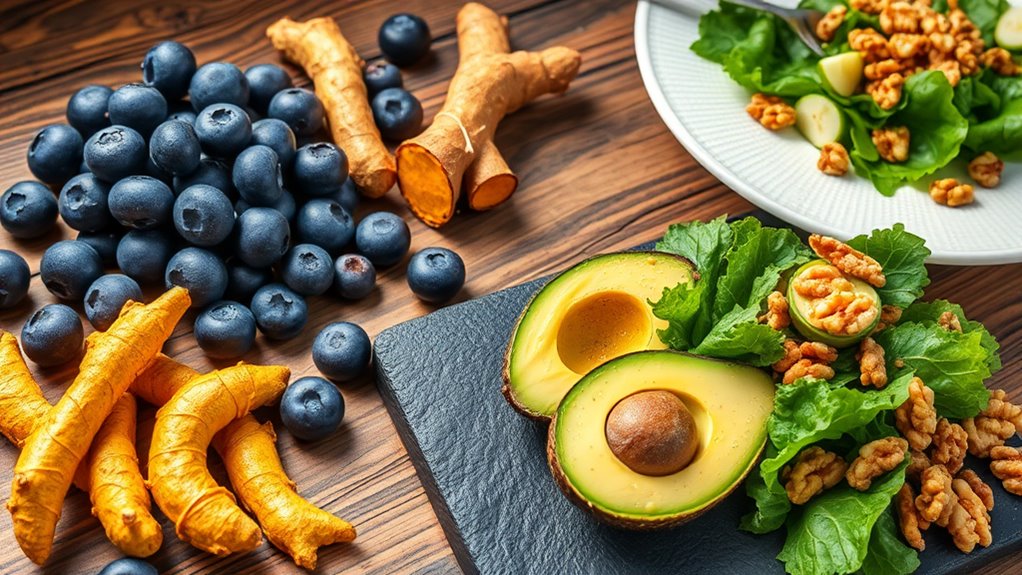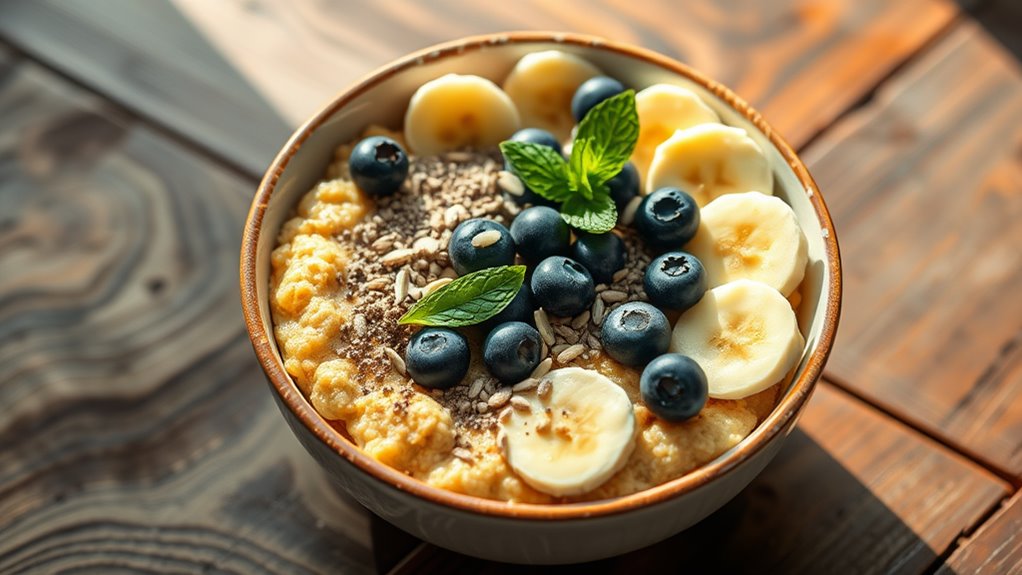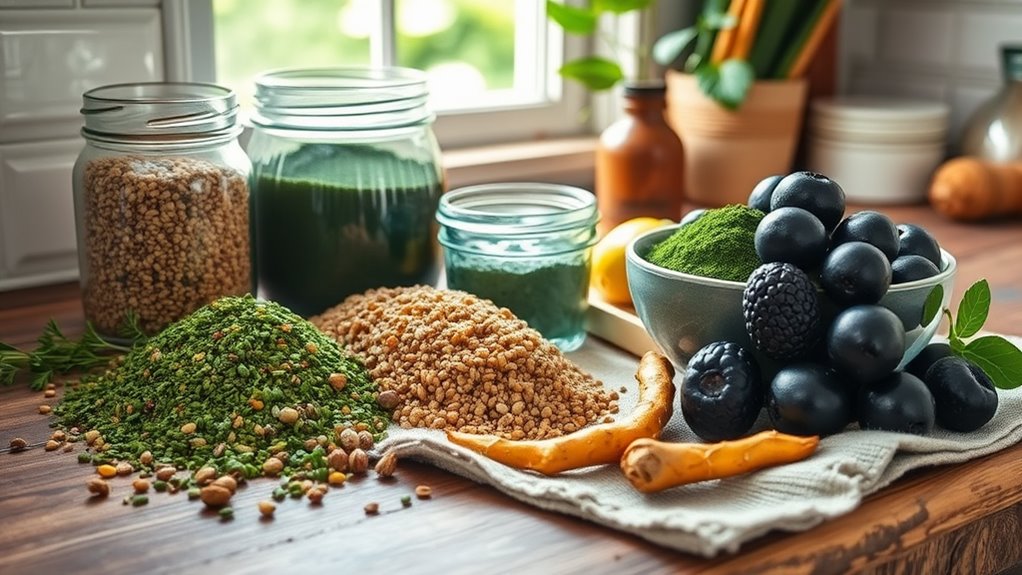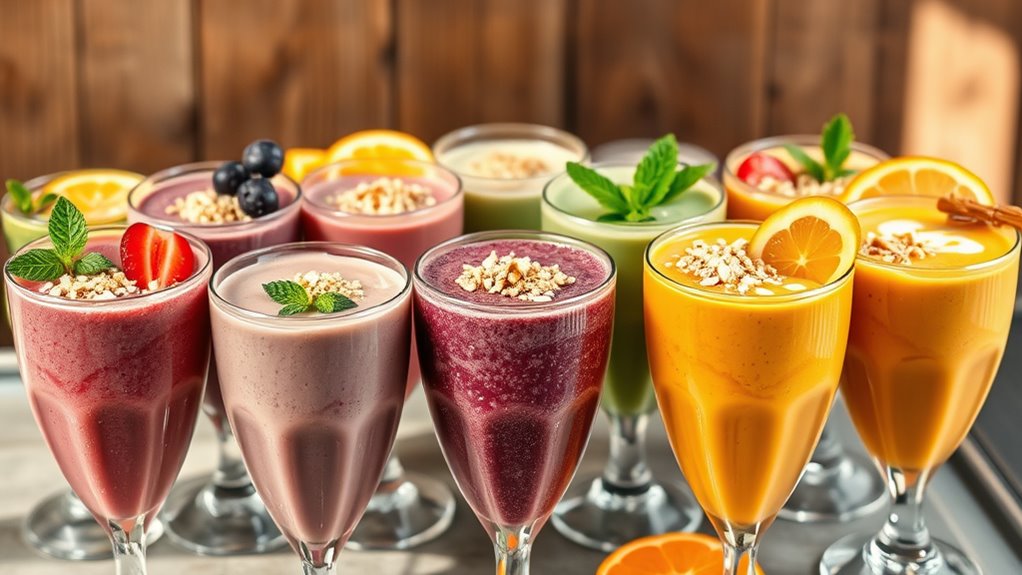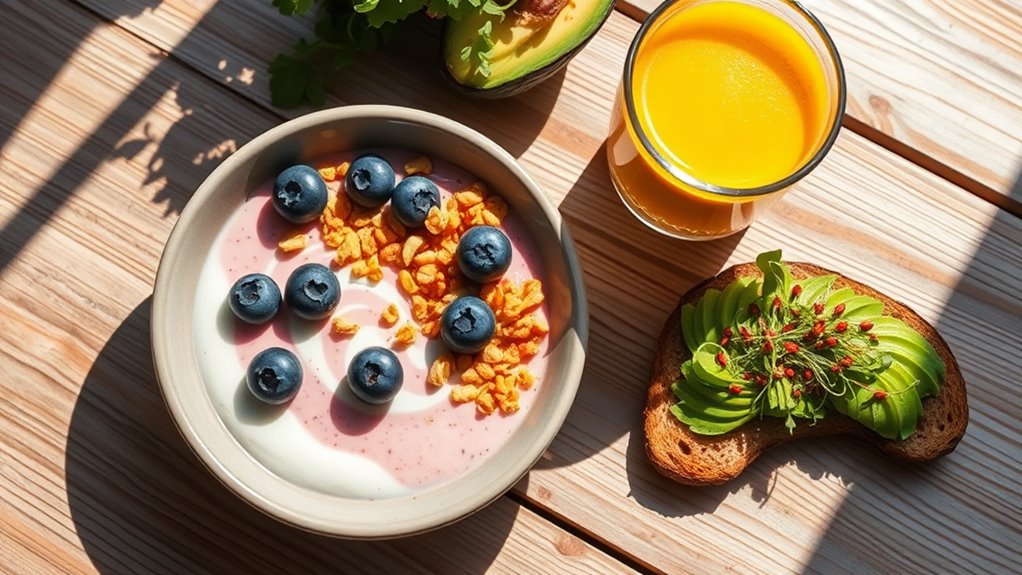These Anti-Inflammatory Foods Are Game Changers
Imagine a busy professional who struggles with chronic inflammation, affecting their energy and productivity. What if incorporating anti-inflammatory foods like berries and leafy greens could transform their health? Research shows that these nutrient-dense options can significantly reduce inflammation and promote overall well-being. By understanding the power of these foods, you might find solutions that enhance your health and resilience against chronic diseases. How can you start making these changes in your diet?
The Power of Berries
Berries are tiny powerhouses packed with nutrients, making them a stellar choice for anyone looking to reduce inflammation.
These superfoods are rich in antioxidants, which help combat oxidative stress and lower inflammation levels. Including them in your diet can boost overall health, improve heart health, and support your immune system.
Leafy Greens for Optimal Health
In addition to berries, incorporating leafy greens into your diet can significantly support your efforts to reduce inflammation.
Rich in antioxidants, vitamins, and minerals, greens like spinach, kale, and Swiss chard combat oxidative stress and improve overall health.
Their high fiber content aids digestion and may help lower inflammation in your body, making them a smart addition to any anti-inflammatory meal plan. Furthermore, adding superfoods to your diet can further enhance the benefits you receive from these greens.
Fatty Fish: Nature’s Omega-3 Source
While you may have heard about the benefits of omega-3 fatty acids, fatty fish like salmon, mackerel, and sardines are among the best sources available.
These fish are rich in DHA and EPA, which help reduce inflammation, support heart health, and improve brain function.
Incorporating fatty fish into your diet a couple of times a week can significantly enhance your overall well-being. Including herbal tinctures in your wellness routine can further support your immune health.
Nuts and Seeds: Nutrient-Dense Picks
Fatty fish provide a fantastic source of omega-3s, but don’t overlook the power of nuts and seeds in your anti-inflammatory diet.
Almonds, walnuts, and flaxseeds are rich in healthy fats, fiber, and antioxidants, which can help reduce inflammation. Incorporating a variety of these nutrient-dense options into your meals can support overall health and protect against chronic diseases. Including superfoods for clear skin in your diet can also enhance your skin’s health while providing energy.
Spices That Pack a Punch
Spices are more than just flavor enhancers; they’re potent allies in the fight against inflammation. Incorporating these spices into your meals can provide significant health benefits. Here’s a quick overview:
| Spice | Benefits | How to Use |
|---|---|---|
| Turmeric | Contains curcumin, an anti-inflammatory compound | Add to curries or smoothies |
| Ginger | Reduces muscle pain and soreness | Brew in teas or add to soups |
| Cinnamon | Lowers blood sugar levels | Sprinkle on oatmeal or yogurt |
| Cayenne | Contains capsaicin, which reduces pain | Use in marinades or sauces |
Additionally, these spices can be infused into herbal tinctures to enhance their health benefits even further.
Whole Grains: A Smart Choice
When you choose whole grains, you’re not just making a smart choice for your meals; you’re also boosting your body’s defense against inflammation.
Whole grains are packed with nutrients that can help reduce chronic inflammation.
Consider incorporating these:
- Quinoa: High in fiber and antioxidants.
- Brown rice: Supports gut health and reduces blood sugar spikes.
- Oats: Loaded with beta-glucans for immune support.

